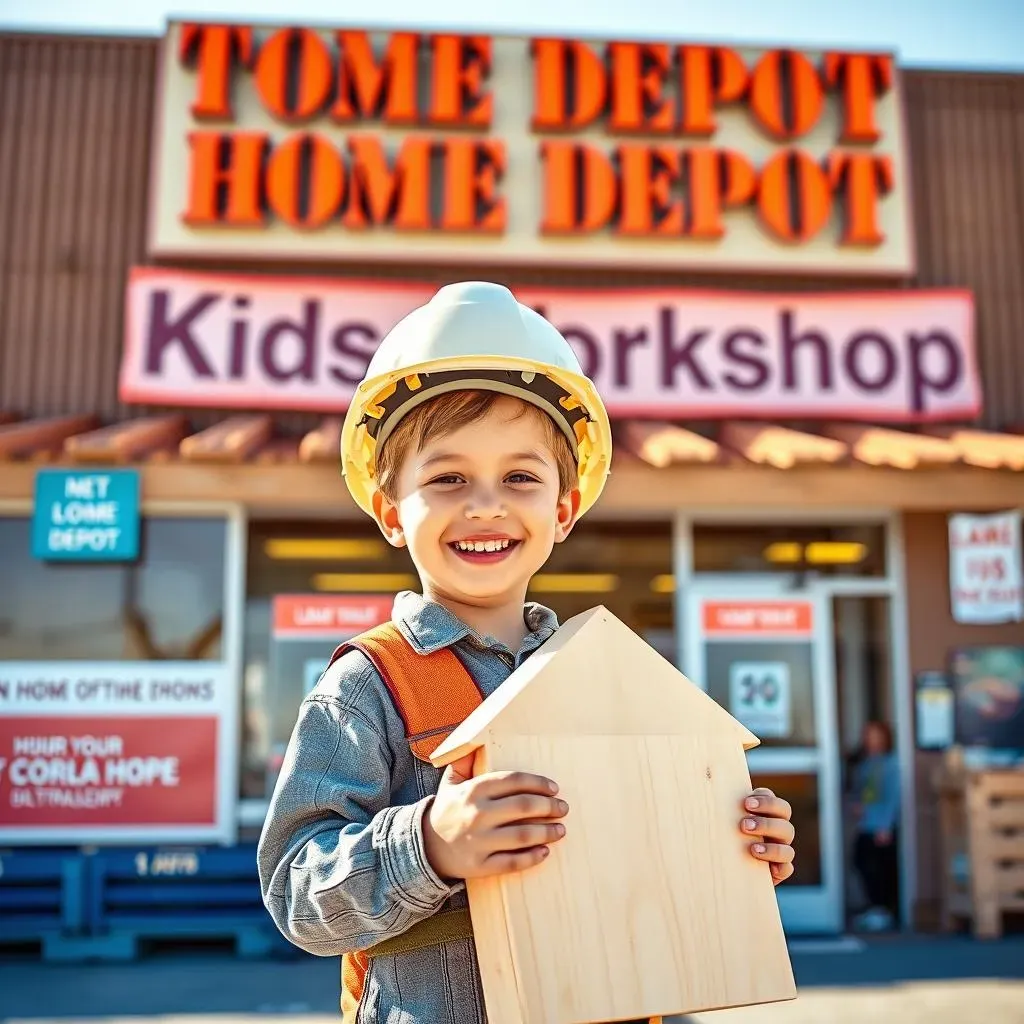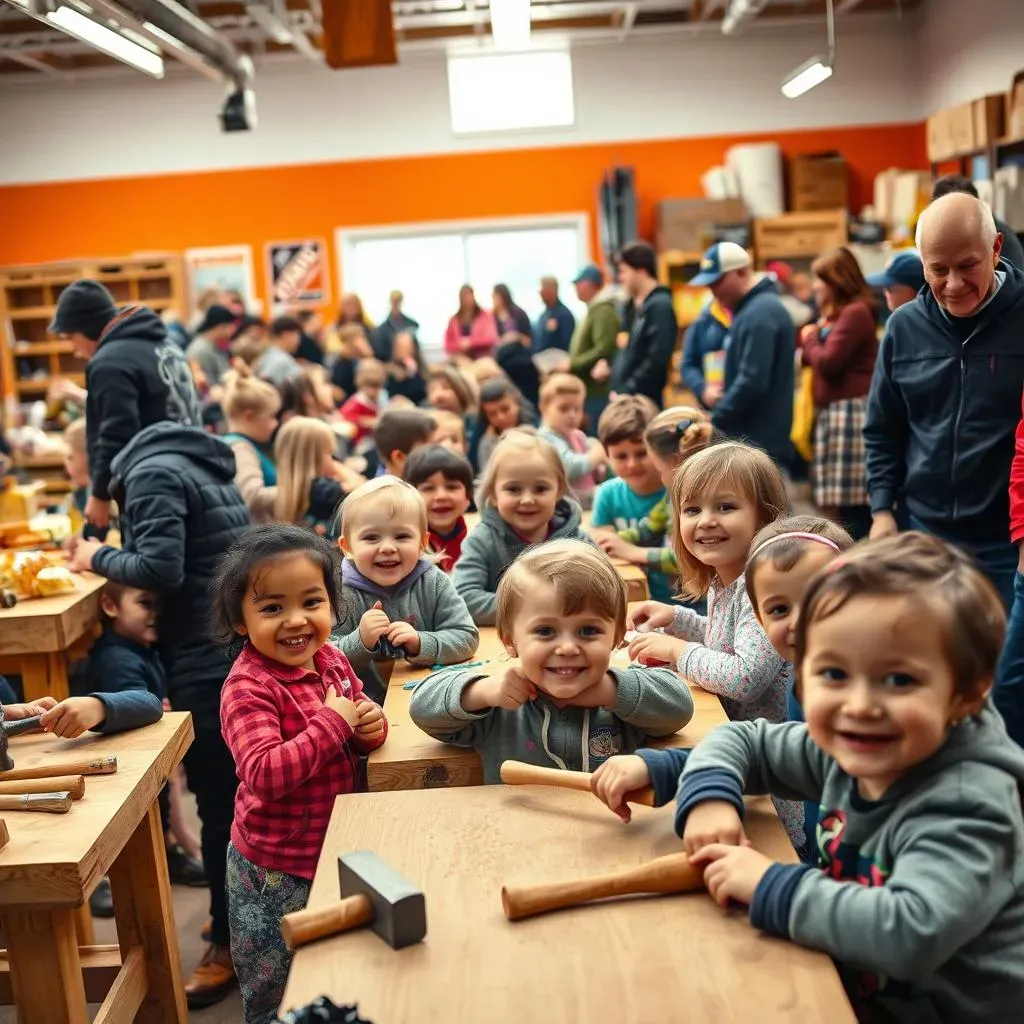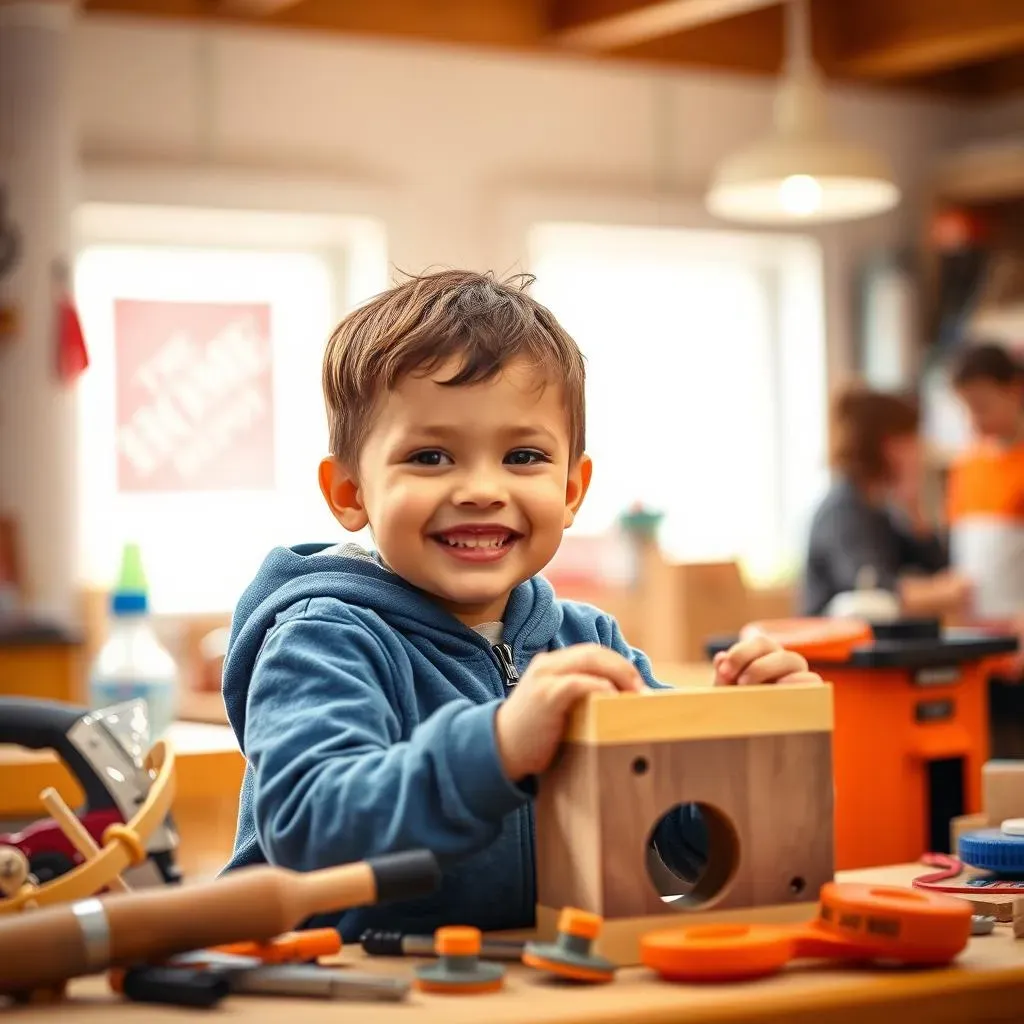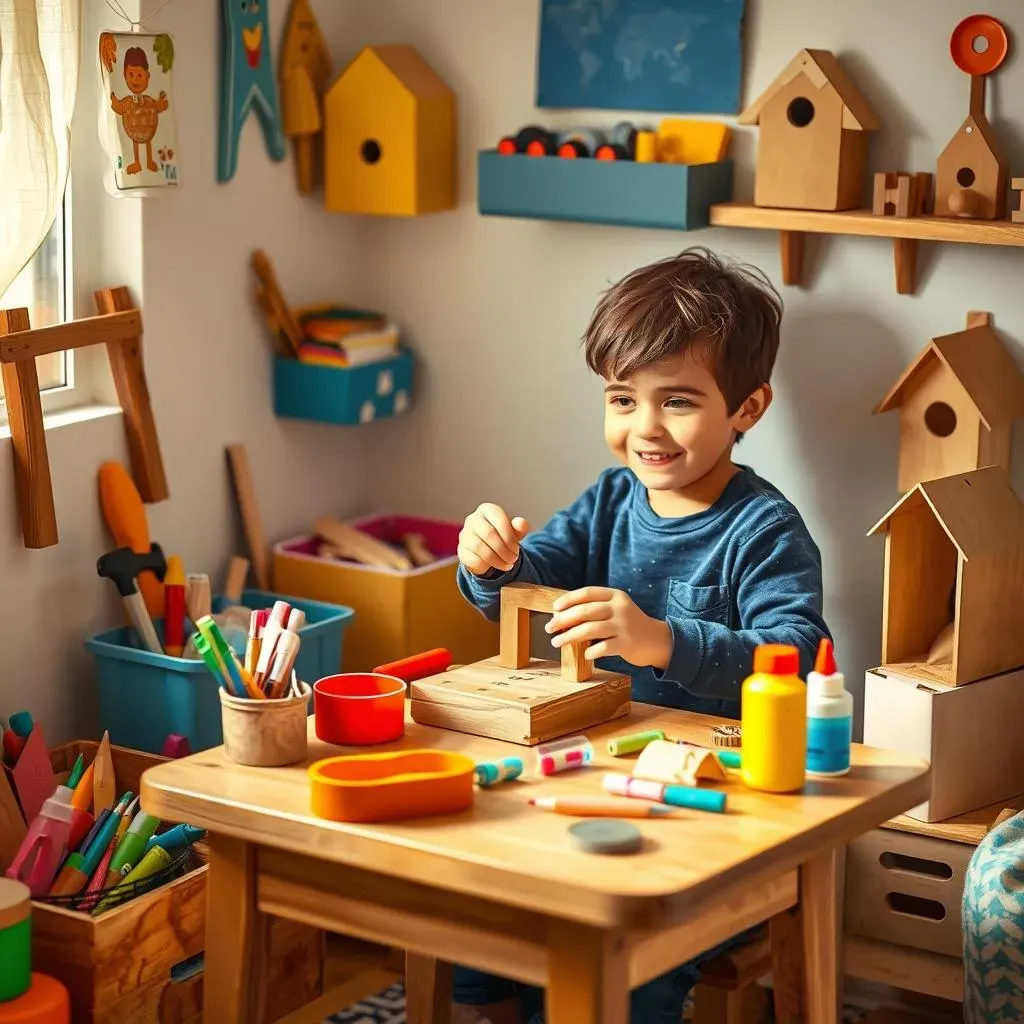Table of Contents
Looking for a fun, free, and creative activity for your kids in Dartmouth? Then you've got to check out the Home Depot Kids Workshop! These workshops aren't just about hammering nails; they're a fantastic way for kids to learn new skills, build confidence, and create something they can be proud of. I remember the first time my little one attended; their eyes lit up as they proudly showed off their handmade birdhouse. It was a mess, but it was their mess, and they learned something new. This article will guide you through everything you need to know about the Home Depot Kids Workshop Dartmouth, from what to expect, to how to make the most of the experience and even how to extend the fun at home. So, grab your tiny tool belts, and let’s explore the world of Home Depot Kids Workshop Dartmouth!
Discovering the Home Depot Kids Workshop in Dartmouth
Discovering the Home Depot Kids Workshop in Dartmouth
What's the Buzz About?
So, you're curious about the Home Depot Kids Workshop in Dartmouth? Well, let me tell you, it's more than just a free activity; it's a monthly dose of hands-on fun for kids! Every second Saturday of the month, the Home Depot in Dartmouth transforms into a mini construction zone, buzzing with the excitement of little builders. It's a fantastic chance for kids to get their hands dirty, learn some basic building skills, and, most importantly, create something cool with their own two hands. It's not just about following instructions, it's about sparking creativity and showing kids that they can build things themselves.
I remember the first time I took my nephew, he was a little hesitant at first, unsure about using tools. But within minutes, he was happily hammering away, a huge grin on his face. That's the magic of these workshops; they take kids from observers to active participants. And the best part? It's totally free! This makes it an accessible and awesome option for families looking for engaging activities without breaking the bank. It’s a win-win for everyone involved. They get to make something, and you get a couple of hours of happy, occupied kids.
Workshop Feature | Details |
|---|---|
Frequency | Second Saturday of each month |
Cost | FREE |
Location | Home Depot, Dartmouth (Check specific store for confirmation) |
What to Expect | Hands-on building projects, basic tool usage, and lots of fun! |
Finding the Right Workshop for You
Now, Dartmouth is a pretty big place, and there are a couple of Home Depot locations. So before you pack up the kids and head out, it’s essential to double-check which location is hosting the workshop on the day you plan to go. I usually give the store a quick call or check their website just to make sure. Nothing's worse than showing up to find out you're at the wrong place, trust me, I’ve been there. Also, these workshops are quite popular, so it's a good idea to get there a bit early to secure a spot.
They typically have two sessions, one in the morning and one in the afternoon, but it's always good to confirm the timings with the specific store. These workshops are designed for kids of various ages, but usually, the projects are best suited for kids between 5 and 12 years old. However, even younger kids can participate with a little help from a parent. It’s not just about the project itself; it’s about the experience of working with their hands, learning to follow instructions, and the sense of achievement when they complete their creation.
What to Expect at a Home Depot Kids Workshop Dartmouth
What to Expect at a Home Depot Kids Workshop Dartmouth
What to Expect at a Home Depot Kids Workshop Dartmouth
Okay, so you've found the right Home Depot and the right date, now what happens? Well, imagine walking into a room filled with mini workbenches, tiny hammers, and the excited chatter of kids eager to build. That's pretty much the scene at a Home Depot Kids Workshop in Dartmouth. Each child gets their own little workstation, complete with all the materials they need for that month's project. It could be anything from a wooden race car to a picture frame or even a small birdhouse. The projects are always age-appropriate and designed to be fun and engaging. They're not going to be building a deck or anything, but it’s a chance to get hands-on with real tools and materials – which is pretty cool for kids.
The workshops usually start with a brief introduction and safety talk. Don't worry, it's not like a boring lecture; it's more about showing the kids how to handle the tools safely and explaining the project step-by-step. The Home Depot staff are fantastic, always patient and ready to help. I've seen them gently guide kids who are a bit unsure, encouraging them to try and never making them feel bad if they need assistance. It’s a very supportive environment, where the kids are encouraged to learn at their own pace. And the best part is seeing the kids’ faces light up when they see their finished creation, that sense of pride is priceless. It’s not just about the final product, it’s about the process and the learning that happens along the way.
Workshop Element | Description |
|---|---|
Project Materials | Pre-cut wood pieces, nails, screws, glue, and other necessary items |
Tools | Child-safe hammers, screwdrivers, and sometimes paint brushes |
Instructions | Clear step-by-step guide, often with visual aids |
Assistance | Helpful Home Depot staff who provide guidance |
Safety | A brief safety talk before the workshop begins |
Tips for a Successful Home Depot Kids Workshop Experience in Dartmouth
Tips for a Successful Home Depot Kids Workshop Experience in Dartmouth
Planning Ahead for a Smooth Workshop
Okay, so you're all excited for the Home Depot Kids Workshop, that's awesome! But let's be real, a little planning can go a long way in making sure your experience is smooth and enjoyable. First things first, check the Home Depot website or call your local store in Dartmouth to confirm the date and time of the workshop. These things can sometimes change, and you don't want to show up and find out it's not happening. Also, they often have a specific project each month, so it's fun to see what the kids will be building ahead of time. I usually get my kid excited by showing them a picture of the project ahead of time, it definitely helps build anticipation.
Another tip is to arrive a bit early, especially if you’re going on a busy weekend. These workshops are popular, and spots can fill up quickly. Plus, arriving early gives your kid a chance to get comfortable with the environment and pick their workstation. Don't forget to dress your child in clothes they can get messy in, those hammers and paints can sometimes get a little wild. And finally, bring a water bottle and maybe a small snack, just in case your little builder gets thirsty or hungry during the workshop. It's always good to be prepared!
Tip | Why it's Helpful |
|---|---|
Confirm Date/Time | Avoid showing up to a cancelled workshop. |
Arrive Early | Secure a spot and get settled. |
Dress for Mess | Protect clothes from paint or glue. |
Bring Water/Snack | Keep kids hydrated and energized. |
Making the Most of the Workshop
Once you're at the workshop, it's all about diving in and having fun! Encourage your child to participate actively, and don't worry if they need a little help. The Home Depot staff are there to assist, and it's a great opportunity for them to learn from others. Let your kid take the lead as much as possible, it’s their project after all. It's tempting to jump in and do everything for them, but it's more about the experience and learning, rather than creating a perfect outcome. I've learned that letting my child figure things out on their own, even if it means a few mistakes, is where the real learning happens.
Also, make sure to encourage them to ask questions and engage with the staff. It's a fantastic opportunity for them to learn from experienced people and gain some confidence working with tools and materials. Don’t forget to take some pictures or videos of your little builder in action, these are great memories to look back on. And most importantly, just enjoy the process. It’s not about perfection, it’s about having fun, learning something new, and creating something awesome together.
After the Workshop Fun
The fun doesn't have to end when the workshop does! Once your little builder has finished their project, make sure you take the time to admire their creation and praise their hard work. Let them show it off to family and friends, that sense of accomplishment is a big deal. When we get home, we usually find a special place for the project and talk about what they learned during the workshop. It helps reinforce the experience and makes it more meaningful. It’s also a good way to encourage them to continue building and creating at home.
Consider using the skills learned at the workshop to start some simple DIY projects at home. It doesn’t have to be anything big, even just a small craft project can help keep their creativity flowing. The Home Depot Kids Workshop is more than just a one-day event; it's a spark to ignite your child's interest in building and creating. It's about fostering creativity, problem-solving, and the sense of accomplishment that comes from making something with their own hands. Embrace the mess, celebrate the effort, and keep building those memories.
"The best way to learn is by doing. Encourage your kids to try new things, even if it means making a few mistakes along the way." - *A wise parent (probably)*
Beyond the Workshop: Continuing the Fun at Home after Home Depot Kids Workshop Dartmouth
Beyond the Workshop: Continuing the Fun at Home after Home Depot Kids Workshop Dartmouth
Building on Workshop Skills
So, your kid just finished their awesome project at the Home Depot Kids Workshop in Dartmouth, what’s next? Well, the fun doesn't have to stop there! Think of the workshop as a starting point, a place where they got a taste of building and creating. Now, you can take that enthusiasm and run with it at home. Start by setting up a small "workshop" area for your child, it doesn't have to be anything fancy, just a spot where they can tinker and create. Maybe a corner of their room or a section of the garage, somewhere they can feel like they have their own space to build. This is where you can store their tools and materials, and where they can continue their building adventures.
I remember when my daughter built a small birdhouse at a workshop. When we got home, we designated an area in the garage for her projects. She was so excited to have her own space, and it really encouraged her to keep building. Start with some simple projects that they can easily do with minimal help. It could be anything from building a simple wooden toy to creating a small craft project. The idea is to keep their hands busy, their minds engaged, and that creative spirit alive. It's not about creating a masterpiece every time, it's about fostering that love of building and problem-solving. Remember, the goal is to extend the learning and excitement from the workshop into their everyday lives.
Home Workshop Element | Description |
|---|---|
Dedicated Space | A designated area for building and creating. |
Basic Tools | Child-safe hammer, screwdriver, and measuring tape. |
Materials | Scrap wood, cardboard, glue, and paint. |
Simple Project Ideas | Wooden toys, small crafts, or birdhouses. |
Simple DIY Projects to Try
Okay, so you've got your little workshop space set up, now what projects can you do? Well, the possibilities are endless, but let's start with some simple ideas that are perfect for beginners. One great idea is to use scrap wood to create simple wooden toys. You can make a small car, a simple block puzzle, or even a wooden animal. It’s a great way to use up those leftover pieces from the Home Depot workshop and teach your kids about recycling. You could also try building a simple bird feeder using a plastic bottle and some wooden dowels. It's a fun way to introduce your kid to nature and also give them a sense of accomplishment knowing that they built something useful.
Another idea is to use cardboard boxes to create mini towns or forts. These are so much fun, and they allow kids to really use their imaginations. They can build roads, houses, shops, and anything else they can dream up. I remember spending hours building cardboard castles with my brother when we were kids; those were some of my best memories. The key is to make it fun and engaging, and to let your child’s imagination be their guide. Don’t worry about perfection, just focus on the process of creating and learning together. It’s about the fun they have along the way, not just the end result.
"Creativity is intelligence having fun." - Albert Einstein